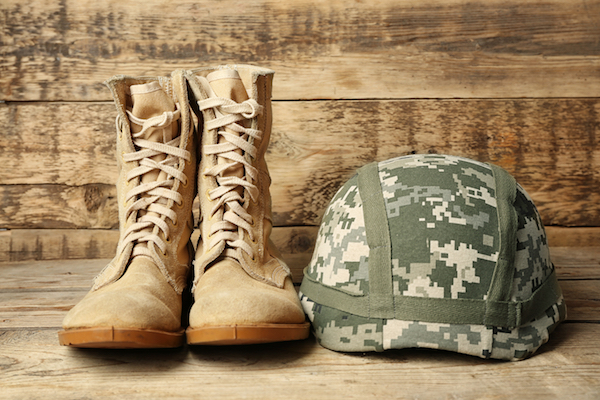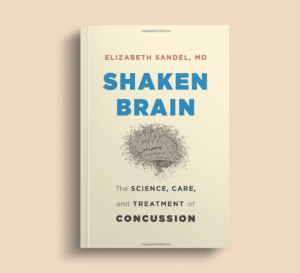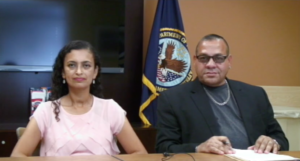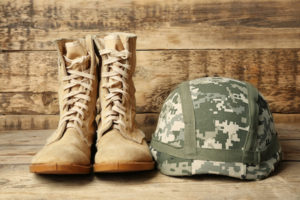Military Blast Injuries Can Injure More than the Brain

This month I discussed brain injury in a military setting and the care that veterans receive afterwards with Dr. Hetal Lakhani, a physiatrist at the VA in Martinez, CA and medical director of the Polytrauma Program. I spoke to her along with a 38-year military veteran, Richard Reyes, who had suffered brain injuries and spoke about his experiences. You can watch that interview below or here.
Dr. Lakhani and I discussed several aspects and I want to summarize some of them here, including the types of injuries that are common to active military on the front lines, how evaluation is handled, common symptoms, and lastly, treatment.
Common causes of brain injuries in active military
Blast injuries are a common cause of TBI and polytrauma in military personnel in battle zones. A blast injury is most often caused by an IED (improvised explosive device) in the road, an RPG (rocket-propelled grenade), or a regular grenade.
There are four types of injuries that occur in a blast injury:
- Primary injuries: The blast wave causes overpressure followed by underpressure, which impacts the brain and other organs of the body.
- Secondary injuries: Objects propelled by the blast, like shrapnel, strike the body.
- Tertiary injuries: The force of the explosion knocks the person up against a stationary object.
- Quaternary injuries: Other injuries such as burns or crush injuries, occur at the same time.
A blast may lead to multiple of these types of injuries occurring in the same event. Blast injuries commonly result in both bodily damage and brain trauma.
How potential brain injury is evaluated on the front lines
In deployed settings, if someone is suspected of having a brain injury, they should be administered the Military Acute Concussion Evaluation (MACE). The MACE helps gather information about the incident including common concussion and brain trauma symptoms like headache, nausea, irritability, and ringing in the ears. Those suspected of having a brain injury should rest for 24 hours after the incident.
Dr. Lakhani also mentions that for several years now the military has been using baseline cognitive testing, the Automated Neuropsychological Assessment Metrics tool (ANAM). If a service member does sustain a brain injury, physicians and therapists can compare pre-injury and post-injury results on these types of neurocognitive tests to help identify issues and create a treatment plan.
Examining symptoms
There’s no significant difference here between civilians and military personnel, says Dr. Lakhani; the symptoms of concussion and brain trauma are the same, with headache being the most common.
Dr. Lakhani stresses that “headache” isn’t good enough when it comes to evaluations and determining a course of treatment for a service member or veteran. When someone comes in complaining of headache after a brain injury, she and her colleagues gather as much information as they can about the headache: when it began or got worse, location of the pain, and the severity, frequency, and intensity, for starters. She also wants to know about sleep patterns, neck pain or other musculoskeletal difficulties, and any medication the patient is taking.
Effective treatment of brain injuries in veterans
In her experience, Dr. Lakhani has found four things that are the most effective in addressing the symptoms that come from a brain injury:
- Stimulus control
- Environmental modification
- Sleep hygiene education
- Physical therapy
Vestibular rehab is very effective, too, for treating dizziness and vertigo, she says. Finally, if other treatments don’t work, medication is sometimes a viable option.
Learn more about veterans and their treatment for brain injuries
This is just a bit of what’s in the interview. We go more in depth on these topics, plus Richard Reyes shares his personal experience as a veteran with several brain injuries during his years in the service. Watch the whole interview below or here.
You Might Also Like
Causes of Brain Injury in Military and Veterans
Interview with physiatrist Dr. Hetal Lakhani and 38-year Army veteran, Richard Reyes, who sustained three brain injuries during his military career.
TBI in Active Military and Veterans
Military blast injuries can impact the brain, the lungs, the heart, and other organs in the body. Early diagnosis is very important. Dr. Sandel discusses brain injuries in the military with physiatrist Dr. Hetal Lakhani and her patient, Richard Reeves.
The Emotional Consequences of Brain Injuries in Military Personnel
Military servicemen and servicewomen need early neurologic and psychiatric evaluations and comprehensive treatment after a traumatic brain injury.
Keep up to date
Get updates on the latest in concussion, brain health, and science-related tools from Dr. Elizabeth Sandel, M.D.
By clicking SIGN UP, you agree to receive emails from Dr. Sandel and agree to our terms of use and privacy policy.
Get the book!




